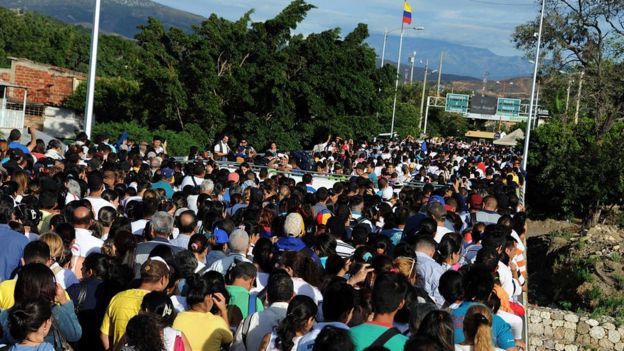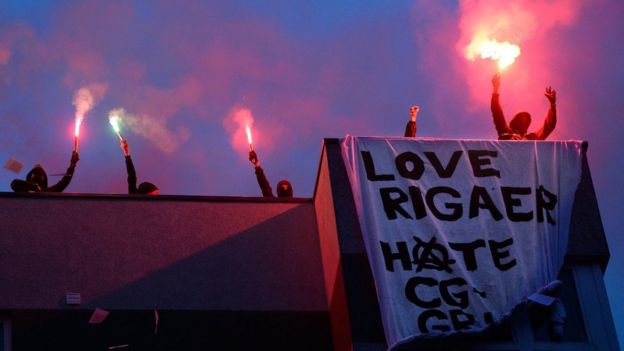By Cintia Garcia
Impunity Watch Reporter, South America
CARACAS, Venezuela—The Venezuelan government opened the border between Colombia and Venezuela for 12 hours on Sunday after a group of women broke through the border the previous Tuesday to purchase food. Government officials have also announced the possibility of reopening the border between both nations again in the near future. Colombia and Venezuela are currently in negotiations and are planning to hold a summit.

Since August 2015, Venezuelan President Nicolas Maduro shut 100 kilometers of the border between San Antonio del Tachira Venezuela and Cucuta Colombia. President Maduro’s reasoning for the border closure was to prevent crime—he claimed the area had been overtaken by gangs and Colombian paramilitaries. Since the closure, in addition to a severe economic downturn in Venezuela, many have been going hungry because there is no food to buy on market shelves.
The situation led 500 women on Tuesday to storm the border connected by the Simon Bolivar Bridge and enter Colombia. The women had organized through social media to gather at the border and cross into Colombia dressed in white. The women pushed past the national guard, bought basic supplies, asked the Colombian guards to let them back through and reentered Venezuela singing the national anthem.
The act by the women prompted the Venezuelan government to open the border on Sunday for 12 hours. Approximately 35,000 people crossed into Colombia crowding the markets to buy rice, oil, toilet paper, medicine and any other basic necessity.
Venezuela’s food scarcity continues to grow causing families, especially children, to go hungry. Venezuela relies largely on imports to feed the nation since it does not produce other goods to fabricate products. Venezuela’s main production and revenue stems from oil. A drop in oil prices globally has caused an economic crisis in the country. A shortage in revenue means that Venezuela cannot import the goods needed to keep markets stocked to feed its citizens. Some critics believe that this is partially the result of government mismanagement. The Venezuelan government says a war is being waged against it for its socialist policies.
For more information, please see:
The Guardian—Venezuelans Storm Colombia Border City in Search of Food and Basic Goods—5 July 2016
BBC—Venezuelan Women Push Past Border Controls for Food—6 July 2016
BBC—Venezuelans Cross into Colombia to buy Food—10 July 2016
TeleSur—Venezuela and Colombia Open Common Border for 12 hours—10 July 2016







